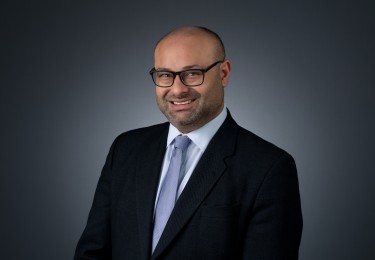Investments | 17 August 2022
our view on defence stocks
Though we don’t exclude this sector, we explain how our responsible investing does not encompass certain companies as we commit to long-term sustainable returns for clients.
Become a client
When you become a client of Coutts, you will be part of an exclusive networkWith the Russian invasion of Ukraine followed by Germany’s additional investment of over €100 billion to its defence budget earlier this year, there’s been a rally in defence stocks. Most notably Germany-headquartered Rheinmetall and Hensoldt as well as BAE systems, the British multinational arms, security, and aerospace company have all gained in value. As a consequence, many clients have asked us about our approach to defence stock investing.
We don’t hold an exclusion on the industry or the sector. Rather, we exclude companies on the basis of their business activities and whether they service or build nuclear weapons and controversial weapons (such as landmines or biochemical and biological weapons). While we respect the right of nations to defend their sovereignty, we believe that the use of nuclear or controversial weapons cannot be justified due to the indiscriminate and the lasting damage caused through their use, a position supported by extensive research and clarified in the Coutts Exclusions Policy.
“Our decision to exclude companies involved with nuclear or controversial weapons was based on the lasting and destructive nature of these weapons,” says Leslie Gent, Head of Responsible Investing. “Our opinions on these types of weapons and the rationale for excluding has not changed based on current events.”
The perspective taken by Coutts reflects our commitment to all aspects of environmental, social and governance (ESG) investing. “Our exclusions derive from our values as well as prudent investing principles around long-term returns,” says Leslie.
PROFIT WITH PURPOSE
We, as a business, balance both purpose and profit. Coutts is serious both about its responsible investing approach, but also more widely, about the approach we take to ESG in its entirety. Being the first UK-headquartered private bank to achieve B Corp status highlights our commitment to taking sustainability seriously. Generating a positive impact not just for our clients but also for wider society has been pivotal for our longevity and success, and we believe that an ESG integrated approach will generate sustainable returns over the long-term.
Concerning an area like defence stocks, which in light of current news has shifted our conversations, it’s important to consider the long-term implications. Combined with our B Corp status as proof of our commitment to sustainability, Coutts’ client centric approach means that we continuously strive to meet the highest standards of social and environmental performance, and public transparency.
Find out how we have made an impact in our first year as a B-Corp.
An economy experiences ‘stagflation’ when growth is stagnant and inflation is high. It’s an unwanted situation because money is losing value while investments into assets such as shares in companies aren’t making returns because there is such low, or even negative, economic growth.
Stagflation became financially synonymous with the difficulties the UK and other economies faced in the 1970s. The oil producing organisation OPEC embargoed oil exports to many western nations, pushing up oil and energy prices dramatically. The rise in the cost of living, fuelled in part by wage price spirals, coincided with stagnant economic growth, and unemployment was high while things got more expensive. This resulted in stagflation.
Although we currently have an energy shock, especially in Europe, as a result of the Russian invasion of Ukraine, the main driver of today’s inflation pressures was the pandemic. It led to a large demand for goods when strained and locked-down supply chains couldn’t cope.
Find out more about the latest market movements and what they mean by visiting our insights page or listening to our latest podcasts.
The value of investments, and the income from them, can fall as well as rise and you may not get back what you put in. Past performance should not be taken as a guide to future performance. You should continue to hold cash for your short-term needs.
More insights






